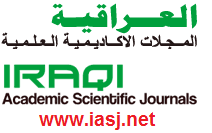Artificial Intelligent Models for Detection and Prediction of Lost Circulation Events: A Review
DOI:
https://doi.org/10.31699/IJCPE.2022.4.10Keywords:
Artificial intelligence, Machine learning, Lost circulation prediction, intelligent models, loss of circulationAbstract
Lost circulation or losses in drilling fluid is one of the most important problems in the oil and gas industry, and it appeared at the beginning of this industry, which caused many problems during the drilling process, which may lead to closing the well and stopping the drilling process. The drilling muds are relatively expensive, especially the muds that contain oil-based mud or that contain special additives, so it is not economically beneficial to waste and lose these muds. The treatment of drilling fluid losses is also somewhat expensive as a result of the wasted time that it caused, as well as the high cost of materials used in the treatment such as heavy materials, cement, and others. The best way to deal with drilling fluid losses is to prevent them. Drilling fluid loss is a complex problem that is difficult to predict using simple and traditional methods. Artificial intelligence represents a modern and accurate technology for solving complex problems such as drilling fluid loss. Artificial intelligence through supervised machine learning provides the possibility of predicting these losses before they occur based on field data such as drilling fluid properties, drilling parameters, rock properties, and geomechanical parameters that are related to the loss of circulation of the wells suffered from losses problem located in the same area.
In this paper, several supervised machine learning models have been reviewed that were used for detecting and predicting of loss of drilling fluids during the drilling process. The paper provides an inclusive review of drilling fluid prediction and detection from simplest to more complected intelligent models.
Received on 11/06/2022
Accepted on 27/07/2022
Published on 30/12/2022
References
C. R. Miranda, et al. "Materials for controlling severe lost circulation-laboratory evaluation," SPE Latin America and Caribbean Petroleum Engineering Conference, OnePetro, 2017.
S. Krishna, S. Ridha, P. Vasant, S. Ilyas and A. Sophian, "Conventional and intelligent models for detection and prediction of fluid loss events during drilling operations: A comprehensive review", Journal of Petroleum Science and Engineering, vol. 195, p. 107818, 2020.
U. Arshad et al., "Engineered Solution to Reduce the Impact of Lost Circulation During Drilling and Cementing in Rumaila Field, Iraq", Day 4 Wed, December 09, 2015, 2015.
N. Said Amin and A. A.Alhaleem, "Analysis of Stuck Pipe Incidents in Khabaz Field", Iraqi Journal of Chemical and Petroleum Engineering, vol. 19, no. 4, pp. 47-53, 2018.
D. E. Caughron, D. K. Renfrow and J. R. Bruton et al., "Unique crosslinking pill in tandem with fracture prediction model cures circulation losses in deepwater Gulf of Mexico." IADC/SPE Drilling Conference, 2002.
A. Moazzeni, M. Nabaei, K. Shahbazi and A. Shadravan, "Mechanical Earth Modeling Improves Drilling Efficiency and Reduces Non-Productive Time (NPT)." SPE Deep Gas Conference and Exhibition, Manama, Bahrain, January 2010.
H. Toreifi, H. Rostami and A. manshad, "New method for prediction and solving the problem of drilling fluid loss using modular neural network and particle swarm optimization algorithm", Journal of Petroleum Exploration and Production Technology, vol. 4, no. 4, pp. 371-379, 2014.
A. Abbas, A. Bashikh, H. Abbas and H. Mohammed, "Intelligent decisions to stop or mitigate lost circulation based on machine learning", Energy, vol. 183, pp. 1104-1113, 2019.
Z. Geng et al., "Predicting seismic-based risk of lost circulation using machine learning", Journal of Petroleum Science and Engineering, vol. 176, pp. 679-688, 2019.
W. White, causes of delays in drilling time with use of WBMs at five offshore wells
representing 871 drilling days. Technical Report, Marathon Oil, Lafayette, LA, USA. 1994.
G. Fuh, N. Morita, P. Boyd and S. McGoffin, "A New Approach to Preventing Lost Circulation While Drilling." SPE Annual Technical Conference and Exhibition, Washington, D.C., 1992.
R. Jahanbakhshi, R. Keshavarzi and S. Jalili, "Artificial neural network-based prediction and geomechanical analysis of lost circulation in naturally fractured reservoirs: a case study", European Journal of Environmental and Civil Engineering, vol. 18, no. 3, pp. 320- 335, 2013.
M. Aljubran, J. Ramasamy, M. Albassam and A. Magana-Mora, "Deep Learning and Time-Series Analysis for the Early Detection of Lost Circulation Incidents During Drilling Operations", IEEE Access, vol. 9, pp. 76833-76846, 2021.
M. Sabah, M. Talebkeikhah, F. Agin, F. Talebkeikhah and E. Hasheminasab, "Application of decision tree, artificial neural networks, and adaptive neuro-fuzzy inference system on predicting lost circulation: A case study from Marun oil field", Journal of Petroleum Science and Engineering, vol. 177, pp. 236-249, 2019.
Alkinani, Husam H., Al-Hameedi, Abo Taleb, Dunn-Norman, Shari, Alkhamis, Mohammed M., and Rusul A. Mutar, "Prediction of Lost Circulation Prior to Drilling for Induced Fractures Formations Using Artificial Neural Networks." Paper presented at the SPE Oklahoma City Oil and Gas Symposium, Oklahoma City, Oklahoma, USA, April 2019.
F. Agin, R. Khosravanian, M. Karimifard and A. Jahanshahi, "Application of adaptive neuro-fuzzy inference system and data mining approach to predict lost circulation using DOE technique (case study: Maroon oilfield)", Petroleum, vol. 6, no. 4, pp. 423-437, 2020.
X. Hou et al. "Lost Circulation Prediction in South China Sea using Machine Learning and Big Data Technology," Offshore Technology Conference, Houston, Texas, USA, May 2020.
A. Ahmed, S. Elkatatny, A. Ali, M. Abughaban and A. Abdulraheem, "Application of Artificial Intelligence Techniques in Predicting the Lost Circulation Zones Using Drilling Sensors", Journal of Sensors, vol. 2020, pp. 1-18, 2020.
V. Yamaliev, E. Imaeva and T. Salakhov, "About the Deep Drilling Equipment Technical Condition Recognition Method", Ufa State Pet. Technol. Univ., 2009.
Z. Lian, Y. Zhou, Q. Zhau and Z. Huo, "A study on drilling risk real time recognition Technology based on fuzzy reasoning." in Int. Oil Gas Conf. Exhib, China, 2010.
Zhao, Jie, Shen, Yuelin, Chen, Wei, Zhang, Zhengxin, and Sonny Johnston,"Machine Learning–Based Trigger Detection of Drilling Events Based on Drilling Data." SPE Eastern Regional Meeting, Lexington, Kentucky, USA, October 2017.
S. Unrau, and P. Torrione, "Adaptive Real-Time Machine Learning-Based Alarm System for Influx and Loss Detection." SPE Annual Technical Conference and Exhibition, San Antonio, Texas, USA, October 2017.
Downloads
Published
Issue
Section
License
Copyright (c) 2022 Iraqi Journal of Chemical and Petroleum Engineering

This work is licensed under a Creative Commons Attribution-NonCommercial 4.0 International License.












